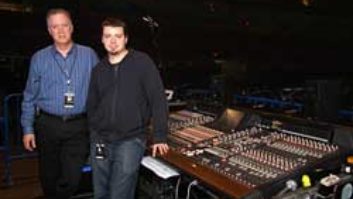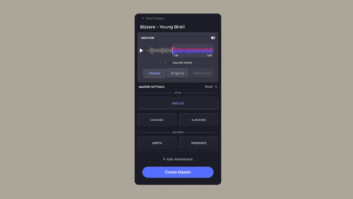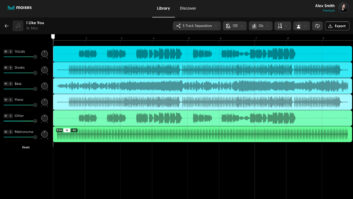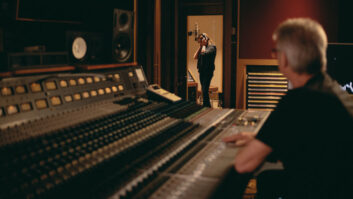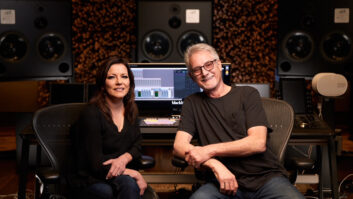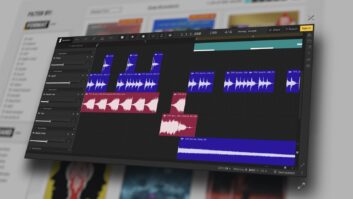We barely had room in print to touch the surface of this essential issue: the ways engineers, producers and studio owners make time for their private lives while they juggle demanding careers. Here are some of the stories and observations you didn’t see in print.
Bob Irwin, owner of Sundazed Records and Studios, and reissue producer for Sony Legacy among others, talked extensively about his life in music.
Brian Montgomery, staff engineer at Avatar Studios, painted a very clear picture of life as a young engineer at a successful studio.
Trina Shoemaker was very candid about the tradeoffs she’s made to put her son first.
Irwin: “Basically, everything I ever did was music-related! I was always happily entrenched in that world. In fact, I met my wife, Mary, through music. At that time, I was playing in a band with her brother. She came to New York to see her brother play, and we immediately hit it off. We were married four months later! Wow! But here we are; it’s 25 years later. It was the right thing to do!
“Mary and I intrinsically knew we were the kind of folks who had to love our daily jobs. Early on, we agreed that we would adapt our lifestyle to that philosophy, rather than vice-versa. We started the company together—at the time, our daughter was 5. Our house had always been such a musical household; our circle of friends were mostly musicians and other record-biz people. I don’t mean for this to sound short-sighted, but honestly, there wasn’t a lot of advance thought and deep-thinking about how this lifestyle was going to mesh with family life because our family life was happening while everything else was going on. In fact, starting Sundazed just felt like the next logical step from where we were at the time. I’d already been working crazy hours, and that was the life I’d known—at that time, I was running a chain of record stores by day and either going into the studio at night or heading out to play music somewhere with friends.
“In retrospect, it certainly helped that my mom and dad were only a block-and-a-half away, and they were always happy to babysit our daughter for us. When we first started the company, it actually was in the dining room of our house. We laugh about it now, but we happily remind people that we literally started with a broken typewriter and an old princess phone! We had a separate phone line at the house. My daughter actually still remembers this: When the phone rang, we’d say, ‘Katie, shhhhh, it’s a business call!’
“That arrangement didn’t last that long! I think it was only five or six months before the business outgrew the house, which was a great thing. We then moved into a loft that was less than a mile away. Our business offices were always very comfortable, non-corporate, non-sterile atmospheres. As my daughter grew up, she sometimes played in the office. Hmmm…in retrospect, I think she’d rather have been at my mom’s house hanging with all the other kids that lived on that street, but she came up through it okay!
“My wife, Mary, has run the business end of Sundazed since day one. She has always taken care of accounts receivable, accounts payable—always done that part of the business. Now she has a team of people who work with her, and she happily enjoys spending some time at home and in the garden. But in the early years, it was just the two of us. I really do believe that’s another thing that made our business work successfully: always having someone who had as vested an interest as I did manning the other office. I could never imagine anyone else running the business end of Sundazed other than Mary, because it was basically both of our asses on the line! Starting Sundazed 18 years ago took every penny we had, including re-mortgaging the house, and using everything we had saved to start the company.
“My daughter was working in the music department of Borders Books and Music while she was in college, and we’d joke about this guy and that guy, folks that she knew from school and work, and I took this as a sideways complement: She said to me, ‘Well, how do you expect me to be happy with a guy like that when I grew up in this house? I need to be with someone who loves music, loves good food and knows how to write!’ And I said, ‘Well that’s good. I’ll take that!’
“I don’t want to paint my career in the biz as being completely rosy and sunshine all the time. In retrospect, I do wish that I had taken a stronger stance with some of the outside people that were overly demanding of my time because I missed out on quite a few important things. I was often too nervous to say, ‘No!’ I shouldn’t have trashed a couple of family vacations by bailing out early to finish a project. I should have stayed the extra three days, for example, instead of wringing my hands and sweating about getting back to work!
“But at the time, I would ask myself if could I stand to see someone else take a project over if I wasn’t there. And certain folks knew how to push my buttons…They’d say to me, ‘Well, do you want someone else mastering this record?’ They’d sometimes play that card, and I’d be like, ‘Oh my God, no! I’ve got to go back, now!’
“But overall, I’d say that the choices we’ve made are much more on the plus-side of family than the minus-side. Everything’s worked out just fine! And professionally, I certainly can’t complain. I just finished redoing the entire Sly & The Family Stone catalog for Sony/BMG Legacy, and the new Byrds box set I produced for them just came out a short while ago. And here at Sundazed, it’s always one wonderful musical experience after another. Right now, I’m sitting here in the studio restoring the entire Dick Dale surf catalog from the ’60s. You know, there are worse jobs than this!”
Montgomery: “It was actually kind of hard to arrange this interview, but as it turned out, I needed to take a day off and work at home. I’ve been at Avatar for over five years. Before that, I went to school and when I got out of school, I worked in a music store for a little bit. Then I started to get little freelance recording gigs around town—demo bands and things like that. Soon, I started thinking that the work I was doing wasn’t sounding good as I’d hoped it would. I realized that the only way to do this for real was to learn from the guys that do it for a living. It’s a craft that gets passed down from generation to generation of engineers, so I decided to bite the bullet and try to get a job in a big studio.
“As I’ve moved up in the studio, I see a lot of interns coming in. You can usually spot them from a mile away. Some of them have this sense of entitlement and feel that they should be engineers right after they graduate from recording school. They teach you all the basic principals [at school], but you have to get into a real studio and see how it’s done. Then you have to go through a logical progression to be able to have people trust you with responsibility.
“I started at the bottom and worked my way up. I figured if I was going to be in this business and get good at it, working at a large commercial studio was the way to do it. After being at Avatar just a little while and seeing the engineers that were working there and the kinds of projects they were working on, I was happy I went there. Having worked with people like Al Schmitt, Elliot Scheiner and Arif Mardin, I’ve had some of the greatest teachers in the business. There’s so much going on. It’s not just one type of music. From one day to the next it could be anything from jazz to reggae to rock to R&B.
“My position is unique in terms of studios. I’m paid to be on call. Sort of like a doctor, but without a doctor’s salary! I’m on call for 40 hours per week, but it doesn’t necessarily mean I work only 40 hours a week. It varies, depending on the project I’m involved with. But generally I’d say that it ends up not being less than 50-plus hours per week. Sometimes it can be more than 20 hours in one day!
“Every night, I call in and get my schedule for the next day. Typically, I don’t know what I’m going to be working on ahead of time, unless it’s a long-term project. I occasionally have to work on holidays, too, but I try to make sure I get holidays off, even if I have to take vacation days to do it. I’m lucky to work at a studio that gives vacation days.
“I’m not in a relationship now. I’m in awe of people, in my position, who manage to pull it off. It’s hard to find the time to keep something like that going and not have the other person get upset or feel like they’re not getting enough time with you. It seems difficult at this point in my career. I’m looking at it realistically. I wish I had the time; I barely have the time for myself.
“The changing nature of my schedule usually means it’s hard to make plans with other people. But I’ve had to say to myself, ‘Look, this is something I really want to do, and I’m going to put the time in now to do it and make the personal sacrifices to do it.’ Right now, I’ve got to take this job as it goes because a lot of this business is about being in the right place at the right time. If you keep doing it, something will happen for you where you can support yourself and eventually get your lifestyle where you’d like it to be. There’s a lot of luck and timing involved.
“There is a positive side to it all. Even with the long hours and everything else, while you’re there and while it’s happening, it’s like, ‘I’m getting paid to do this?’ I’m listening to incredible music all day. If you love what you’re doing, it really doesn’t feel like work at all. That’s the pay-off for me.”
Shoemaker: “I was about 37, and thought, ‘This is a nightmare. I’ve got a stack of CDs. I’ve got some Grammys. I’ve got some money. I’ve got nothing else. I’m alone. I have no family. And what I have now doesn’t really have any meaning to me anymore.
“So I had to draw a really decent line in the sand. I really was prepared to quit. I was ready to walk away from a career that I’d given the better part of 20 years to. I decided to change my whole life to make something new. I had signed up for archaeological digs as a volunteer in France and Israel. I was going to go to college for the first time. I signed up for an anthropology course. I was going to start a new life, and it wasn’t going to have anything to do with making records.
“[Producer/engineer/studio owner] Sylvia Massey-Shivy is actually one of the reasons I knew that if I wanted to create a family, I would have to be willing to leave the studio. She’s the one who told me, ‘You better leave because you’re not going to find him in the studio. If you think you are, you’re wrong.’
“I was working on Queens of the Stone Age at Sound City on her Neve, and she said that, and it wasn’t long after that that I was like, ‘She’s right. I’m going for it.’
“I still loved making records, but I felt strongly that my experience in the studio was directly opposite to my making a life that included a man and a family. So I made it real, and then ridiculously headed back to New Orleans to start my new life, my new school, get ready for my archaeological digs, and I walked into a club to meet a friend, and to make a long story short, the guy who would become my husband was in there that night…Ten months later I was pregnant, and then I was like, ‘Well, I canceled my records, I planned a new life for myself and suddenly the new life was there.’ The baby was coming, the man thing was happening and I didn’t have to become an archaeologist.
“My point in all of that is that you have to look at your life and determine what is balance. The same way you look at a mix and think, ‘What is balance?’ And then you have to be brave enough to say, ‘My life isn’t balanced and I’m willing to start fresh to create balance.’ That’s not to say you don’t have to first give an enormous amount to the business to have the potential to say, ‘I’m leaving.’ I’m in a position to say, ‘I’m not going to work past 7 at night. I really don’t want to track anymore, I only want to mix.’ I’ve been around long enough where people are cool with that. And I had to create an environment where I could make a balance happen.
“The music business is a pig. It really thinks that it deserves everything. It’s people’s music. It’s their lives. But the ridiculously long days that we’re required to work—that’s because it’s so expensive. I don’t know where it started that music had to be made working 12- or 14-hour days. I don’t know who started that, but I hate it. I’m happy to work a 10-hour day and that’s it.
“Even when I do cut my day short, I live 45 minutes from where I usually work, pick up my son, get home, make sure he’s had supper. If he hasn’t had supper, cook him supper. If he has had supper, bath time. Until he’s asleep in bed, my day doesn’t stop. And then he gets me up at 6:30 in the morning. So my day is full-on—way more full-on than it used to be. I used to sleep until 10:30 and go into the studio around noon.
“You have to demand things back from the business. There are certain people who will never work with me again because I will not buy into the hours or the bullsh**. I’m done with that. For 10 hours a day, you are my god and I worship your music. I’m a lot less tolerant of the way that projects can overwhelm you. I don’t let it because I come home and I’ve got a toddler who needs me. My devotion has changed, but my passion hasn’t.”
